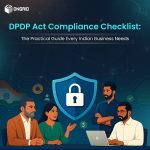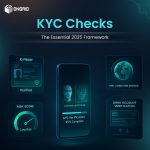Table of Contents
ToggleWhen it comes to hiring, most companies invest heavily in screening resumes, conducting interviews, and running background checks. Yet, one critical layer is often overlooked or treated as a formality — the Professional Reference Check.
In a time where resumes can be embellished and social profiles curated, reference checks remain one of the most reliable ways to assess a candidate’s real-world performance, integrity, and team fit. They bring context, credibility, and confidence to your hiring decision. And skipping this step? That’s a risk no company can afford.
What Is a Professional Reference Check?
A Professional Reference Check involves contacting individuals who have worked closely with the candidate in a previous role — usually supervisors, HR managers, or colleagues — to validate the claims made on a resume and gather insights into the candidate’s professional conduct, competence, and character.
Unlike employment verification (which merely confirms dates and designations), a reference check is qualitative. It helps answer:
How did the candidate handle responsibility?
Were they a team player or an individual contributor?
Did they leave on good terms?
Would the previous employer hire them again?
These answers often influence whether the candidate is a good cultural and functional fit.
Why You Should Never Skip This Step
Skipping a Professional Reference Check can lead to:
Hiring the wrong candidate, costing time and money
Increased turnover due to poor role fit or interpersonal issues
Reputational damage if a mis-hire causes internal or external disruption
Workplace friction and lowered team morale
In contrast, a structured reference check process can:
✅ Confirm the candidate’s claims
✅ Reveal red flags early
✅ Offer insights on managing the hire better
✅ Strengthen legal defensibility in case of future issues
Challenges With Traditional Reference Checks
Traditional reference checks often come with inefficiencies and loopholes:
Delays due to manual follow-ups
Incomplete information from unstructured questions
Bias or misinformation from unverifiable sources
Time-consuming coordination with referees across time zones
These drawbacks make it difficult for hiring teams to scale reference checks in fast-paced or volume hiring scenarios
OnGrid’s Smarter Approach to Professional Reference Checks
At OnGrid, we’ve reimagined the reference check process to be faster, more reliable, and fully trackable — using technology, structured workflows, and domain expertise. Our Professional Reference Check service removes the burden from internal HR teams while ensuring the data is trustworthy and the process is auditable.
Let’s walk you through our step-by-step process:
OnGrid’s Professional Reference Check: Process Map

Record Created
A candidate’s record is created in the OnGrid system once the background verification (BGV) process begins.PRC Requested
The client requests a Professional Reference Check for the candidate.Analysis by Operations Executive
Our operations executive reviews the case details to determine if enough data is available to initiate the reference check (such as referee name, designation, company, and contact details).Insufficiency Raised
If information is missing or unclear, an insufficiency is flagged.Information Updated by Client?
If the client updates the required information, the process moves forward.
If not, the case is marked as closed due to lack of data.
Closed
Cases without updated referee information are closed and marked appropriately in reports.Link Sent to Reference Provider (RP)
Once all information is verified, a secure digital link is sent to the reference provider to collect feedback.Response Received from Reference Provider
The reference provider submits their feedback using a structured, time-efficient questionnaire.PRC Report Reviewed and PublishedOur team reviews the input for quality and completeness. The final Professional Reference Check report is published and made available to the client.
What Makes OnGrid’s Reference Check Process Stand Out?
Structured and Standardized
We use role-specific, pre-approved templates to ensure consistency across all reference checks. The questions are designed to extract relevant insights without leading the respondent.
Seamless Experience for Referees
Referees receive mobile-friendly links and can respond at their convenience. No phone calls, no chasing — just easy, frictionless feedback collection.
End-to-End Tracking
Clients can track the entire journey — from PRC initiation to response received and report generation — through a unified dashboard.
Faster Turnaround Time
Automated reminders and real-time alerts accelerate the process, especially helpful in high-volume hiring scenarios.
Data Privacy and Security
All communication and responses are encrypted. We comply with India’s data protection and labor laws to ensure ethical checks.
Use Cases Across Sectors
Professional reference checks are relevant for every industry — but they become especially critical for:
Leadership roles – where strategic decisions depend on people
Remote or freelance hires – where you lack face-time or context
Client-facing roles – where employee conduct affects brand perception
Critical compliance sectors – like BFSI, healthcare, or EdTech
Real Impact: Why Clients Trust OnGrid
Our clients consistently report:
Reduced bad hires and fewer post-offer dropouts
Increased confidence during final selection
Improved onboarding due to early insights on candidate strengths
Better team fit, leading to higher retention
By outsourcing their Professional Reference Check process to OnGrid, they free up internal bandwidth, improve risk management, and deliver a consistent candidate experience.
Final Thoughts: The Proof Is in the Reference
In today’s high-stakes hiring landscape, gut feeling isn’t enough. A well-executed Professional Reference Check gives hiring managers the missing piece of the puzzle — real, contextual feedback from those who have worked with the candidate.
With OnGrid, you don’t just run a check — you gain insight, clarity, and peace of mind.
FAQs
1. What is the purpose of a professional reference check?
A professional reference check helps validate a candidate’s past work performance, behavior, and compatibility with team culture by gathering feedback from previous supervisors or colleagues. It goes beyond verifying employment dates to assess qualities like integrity, reliability, and teamwork.
2. How is a professional reference check different from employment verification?
Employment verification confirms job titles, dates, and sometimes salary. A professional reference check is qualitative — it provides insights into how a candidate performed in their role, how they collaborated, and whether they’re rehire-worthy.
3. Why are reference checks often overlooked in hiring?
Many companies either treat reference checks as a formality or skip them due to time constraints, manual processes, or concerns about legal boundaries. However, this can increase the risk of mis-hires, workplace friction, or poor role fit.
4. What kind of questions are asked during a professional reference check?
Typical questions include:
How did the candidate handle responsibilities?
Were they dependable and collaborative?
Did they leave on good terms?
Would you rehire them?
These are tailored to draw objective, role-relevant insights.
5. Is it legal to ask for references from previous employers in India?
Yes, it is legal to request and conduct reference checks in India, provided data privacy norms are followed and the process is not discriminatory or intrusive.





Leave a Reply